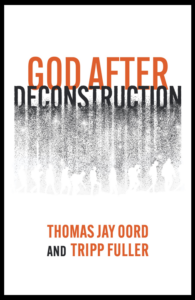Teen Mania Theology – Unreached Peoples?
I enjoyed watching the recent Shiny Happy People documentary on Ron Luce and Teen Mania. The series conclusion disappointed me, however. I think producers missed an opportunity to explore a theological claim that could have motivated Ron Luce more than his concern for teen culture or politics.
A Teenage Holy War
The Amazon Prime, three-part documentary series is subtitled “A Teenage Holy War.” One summary says this:
“Teen Mania captivated a generation of Millennial kids with religious experiences through Acquire the Fire rallies; but beneath the surface lurked boot camps, staged martyrdom drills, and fascism disguised as faith, transforming teens into soldiers.”
The summary is pretty accurate, albeit short. For many, watching the series brought back a flood of memories, good and bad emotions, and questions about ourselves.
The Bad Conclusion
Although I enjoyed the storytelling on the Teen Mania phenomenon, the last ten minutes disappointed me. Things turned decidedly political at the conclusion.
In the final minutes, the series producers connected their story to contemporary American politics. While I think the connections are real, and I understand (and share) the desire to oppose Christian nationalism, I thought the conclusion likely misrepresented Luce’s motivation and Teen Mania’s goals.
The last minutes on the political dimensions stood somewhat at odds with the last scenes of Luce and his ministry. Teen Mania is reported as having gone bankrupt, so the film is giving the viewers an answer to their implicit question, “So what’s Ron Luce doing now?” He’s shown speaking in countries outside the US. We’re told that Luce’s current methods are similar to his Teen Mania work, but he uses different labels.
Ron Luce’s Motivations
Throughout the three-part series, viewers were constantly hearing that Ron Luce was fighting a culture war with, and on behalf of, teenagers. Luce’s own words support this portrayal. He wanted to evangelize while offering teens a godly purpose and an alternative to evil popular culture. I have little doubt these were among Luce’s motives.
But in the first episode of the series, the producers mentioned another of Luce’s motives. And I wonder if it was even more important to Luce than giving Christian teens a voice. The motive: Luce wanted to see the Christian gospel preached to all people groups and, thereby, fulfill the conditions he believed required for the return of Jesus.
Reaching Previously Unreached People Groups
Ron Luce motivated teens to become missionaries in places outside America. And his motive was not simply that these people might receive the Christian message. Luce believed Jesus could not return to earth until at least some portion of every people group on the planet had heard the gospel.
Here’s the biblical proof text for this view:
“This gospel of the kingdom shall be preached in the whole world as a testimony to all the nations, and then the end will come” (Matt. 24:14).
Of course, this passage is open to interpretations other than the one Luce gives it. And most biblical scholars I know would disagree with Luce’s perspective. But he’s not alone in thinking it gives a recipe for the return of Christ.
More than 40 years ago and as a college student, I attended missions conferences in which this verse and Luce’s interpretation were central. Organizers wanted to train young people like me to reach every major people group so that this verse would be fulfilled and Jesus would return. They believed missionaries play a role in bringing about the end of history.
The Incongruent Movie Conclusion
I realize that concluding this Teen Mania installment of Shiny Happy People with an alarm about Christian nationalism will probably appeal to many viewers. And I join producers in opposing Christian nationalism and the harmful things some Evangelicals are currently doing in the US.
But the series conclusion sends a mixed message. Ron Luce is not shown continuing to fight on behalf of American teens and Christian nationalism. He’s depicted abroad, trying to motivate those in other places toward missions.
I wonder if Luce’s primary motivation is preaching to unreached people groups so that the end will come.
Conclusion
I’m grateful for the Teen Mania series. I’m happy the extreme and militaristic tactics Luce and his cohorts used are shown for the harm they caused. I’m also happy to see criticisms of contemporary Christian Nationalism in America. (For more on how Christian Nationalism is prompting young evangelicals to deconstruct, see God After Deconstruction.)
But I think Christians also ought to stop thinking their evangelism could hasten the end of the world. Perhaps they would take issues like climate change, religious pluralism, and diversity more seriously if they rejected the idea of an eschatological escape hatch.



Comments